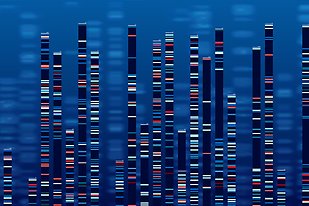Molecular diagnostics

Photo: Getty Images
DNA and protein analyses are often crucial evidence in criminal cases, for example when it comes to establishing a perpetrator’s identity, how many individuals have been at a crime scene or who has held a weapon.
In this project we will explore several approaches to improve forensic DNA-analysis.
Different software for probabilistic genotyping for complex DNA mixture interpretation will be evaluated for their reliability and performance using DNA-profiling experiments. Moreover, an analysis of endogenous protein molecules and metabolites will be conducted to gain important insights regarding reliability, errors, and evidentiary value when using novel forensic markers (Level 1 and 2).
To evaluate the consequences of introducing the DNA tests, for example predictions of eye, hair and skin colour and other molecular evidence in criminal investigations, scenario-based psychological experiments will be conducted to test whether and to what extent criminal investigators can identify and understand potential sources of errors in this evidence, including their understanding of the DNA-mixture evaluation (Level 2 and 3).
A legal case analysis will furthermore be conducted, entailing American cases in which DNA mixture interpretations were made with mixture software specifically developed for this type of evidence. In these cases, the Courts and parties were denied access to the algorithms and the source code owned by a private company (Level 3). Such proprietary ownership of software prevents software error detection and highlights the importance of evaluating forensic methods on all three levels.
